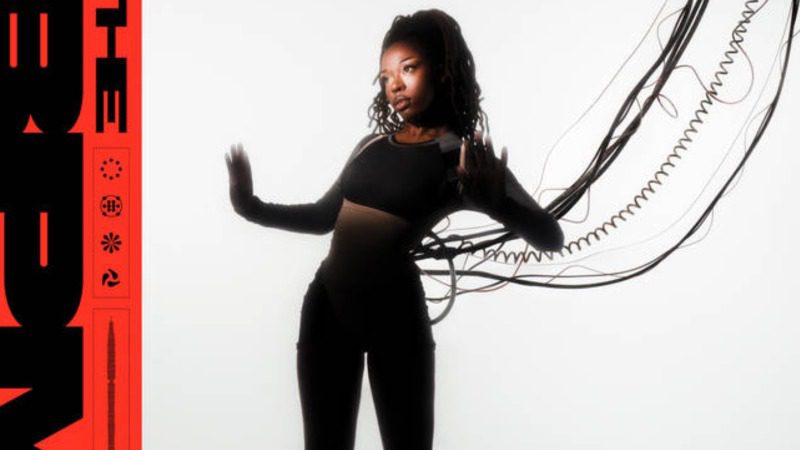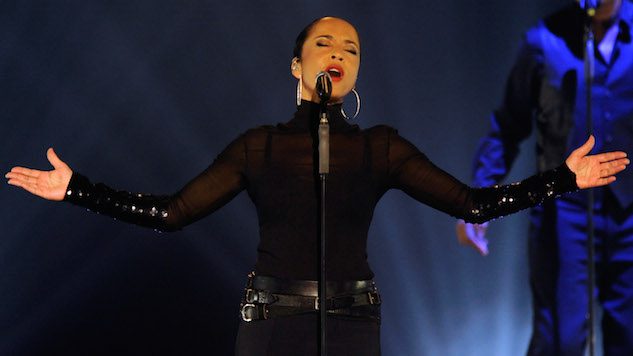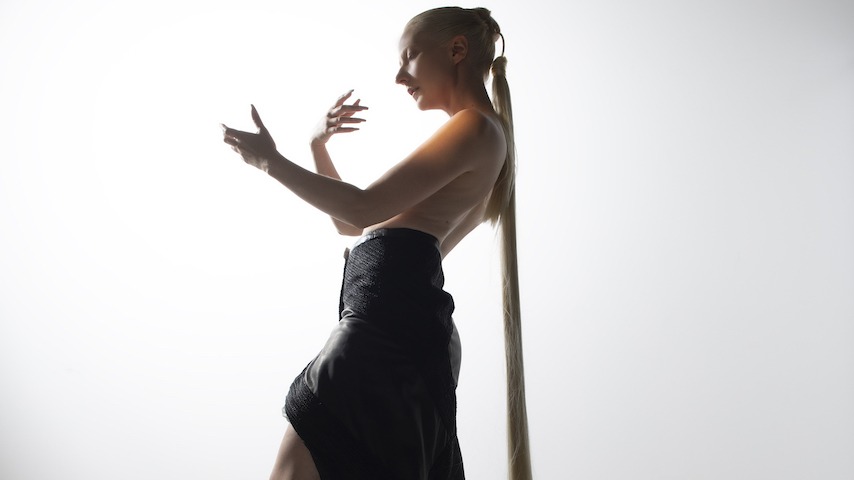When I saw Brittney Parks, known professionally as Sudan Archives, open for Caroline Polachek two years ago, I was almost certain I hadn’t seen anyone like her perform before. The Cincinnati-born, now LA-based R&B and pop artist had come out with her breakthrough sophomore record Natural Brown Prom Queen the year before and made striking use of some of the best songs from that album during her performance. With her trusty violin in tow, she brought a magnetic, charismatic energy to the concert, often trying to get the audience to move along to her music. And though the throngs of Polachek-obsessed fans seemed anxious to see the main act, I found Parks transfixing, her joy and goofiness functioning as compelling complements to her confidence and formidable talent.
What makes Parks particularly notable as a musician is that she’s an autodidact, having learned how to play the violin by ear as a child and how to produce music with the help of an iPad. Though she’s not the only working musician who’s self-taught and tech-savvy, her earnest curiosity around locating a balance between classical and modern musical modes has translated into some truly innovative, impressively crafted pieces that act as a balm in an age of increasingly deadening digital domination.
As technofascism continues its rise and AI slop is being churned out and served to the masses like Amish butter, it’s refreshing to have someone like Parks demonstrate that technology can still be a handy resource for creating great experimental art and serving as a powerful extension of ourselves. Whether it’s externalizing our desire to dance into a propulsive, thumping electronic beat or expanding the limitations of our voice through pitch-shifting and vocal modulation, technology can help us transcend our minds and bodies while tapping into a deeper well of self-understanding. In doing so, we learn to listen to our own instincts instead of those dictated by an algorithm and consequently reap a greater creative and spiritual reward.
This optimistic embrace of technology also extends to Parks’ current influences and inspirations, namely the beatwork that defined the Chicago and Detroit club scenes and her parents’ roots in Illinois and Michigan. The combination of Parks’ personal connection to these sounds with her ethnological interest in the origins of tech-inspired Black music fuels the heart of her third and latest LP The BPM. Though a little more streamlined in its construction than Prom Queen, The BPM carries that record’s same element of freewheeling surprise through fluid, sonorous instrumentation.
The album’s prominent Afrofuturistic concept evokes the chrome-plated sci-fi aesthetic of Janelle Monáe’s Dirty Computer as well as the cavernous, neon-lit sensuality of Kelela’s Raven, but its hypnotic, rave-like energy and avant-garde impulses place it in a league entirely of its own. In contrast to her wide array of outside collaborators on Prom Queen, Parks’s roster on The BPM is a slightly more intimate affair, working mainly with her longtime manager and producer Ben Dickey, her sister Catherine, and her cousins from Detroit. But similar to her previous efforts, Parks has adopted a persona that aligns with the overarching theme of her output; in this case, she embodies “Gadget Girl” on The BPM, a hyper-independent alter ego who relies on technology to express herself. In inhabiting “Gadget Girl,” Parks reckons with the painful, often isolating experience of being a self-sufficient human while searching for a release from all the external pressures that come with it in the safe, freeing space of the club.
These layers suffuse The BPM with palpable emotion and dynamism, frequently beguiling in straddling the line between meditative and boisterous. Parks does a remarkable job finding the fun in her introspection in a way that feels organic rather than forced. On the opener “DEAD,” she skillfully maintains that balance, singing in conversation with herself over a big and bombastic drum ‘n’ bass beat and a spirited whir of strings, the latter of which is provided partly by Chicago-based Black chamber collective D-Composed.
The vigorous charge ignited by “DEAD” powers the rest of The BPM, from Parks’ charmingly cheeky raps on the sleek, slinky bop “MY TYPE” to the oontz-oontz throb of the drum machine on “THE NATURE OF POWER” to the medieval folk-inflected gallop and spiky synths on “SHE’S GOT PAIN.” In the midst of all the glamorous clamor, Parks grapples with the way technology has warped our perception of ourselves (“Did we die? / Are we digitized?” she muses on highlight “A COMPUTER LOVE”) and contributed to the loss of defunct communal spaces (“I used to work at the mall / Now it’s not even here at all,” she laments on the penultimate interlude “LOS CINCI”). These bite-sized observations complicate The BPM’s emotional core as much as they enrich it, acknowledging the bittersweet truth that technology can better the quality of our lives as much as it can strip us of our agency.
In a sense, The BPM seems to be a reclamation of that latter idea, an attempt at showing how liberating it can be when technology is used as a form of self-expression. The album’s loose structure might seem like it could stifle such an aim. There’s certainly a version of this record that prioritizes momentum over feeling, where every track slides into the next à la Beyoncé’s RENAISSANCE. However, Parks makes it clear that every song deserves to exist as its own little universe, or in keeping with the club metaphor, its own little room to dance in. If you want to get lost in the rhythm with a sexy stranger, you can enter “THE NATURE OF LOVE,” “A COMPUTER LOVE,” or “MY TYPE.” If you’re in your feels and need to vibe out the blues, you can wander into “DAVID & GOLIATH” or the gentle closer “HEAVEN KNOWS.” But as a whole, The BPM feels designed for anyone seeking catharsis and solace in a world better than our own, one that vibrates with pleasure and is made for the people by the people. It’s unlikely we’ll get that world in our own, but in the meantime, Sudan Archives provides one that we can hopefully look forward to one day.
Sam Rosenberg is a filmmaker and freelance entertainment writer from Los Angeles with bylines in The Daily Beast, Consequence, AltPress and Metacritic. You can find him on Twitter @samiamrosenberg.




